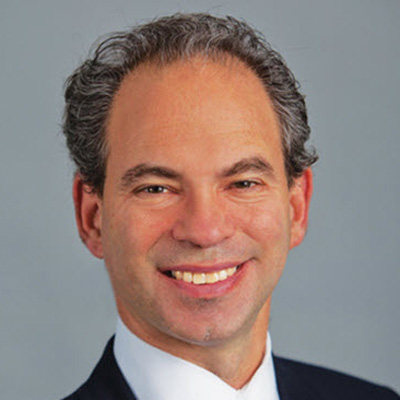CEO Column
November 5, 2020
By: David Biderman, SWANA CEO and Executive Director
 For this issue of I am SWANA News (IASN), we decided to try something new: an entire issue dedicated to a single important topic. We hope you enjoy this special IASN issue, and its focus on recycling.
For this issue of I am SWANA News (IASN), we decided to try something new: an entire issue dedicated to a single important topic. We hope you enjoy this special IASN issue, and its focus on recycling.
SWANA has always been a leader helping local governments and private companies respond to the challenges and opportunities associated with recycling in the United States and Canada. After China announced its National Sword program in July 2017, SWANA began engaging on a regular basis with the U.S. Environmental Protection Agency and other federal agencies, state and local officials, the private sector, and other recycling stakeholders, concerning the impact of National Sword. Among other actions, we established a Recycling Task Force to help guide our activities, which continues to meet quarterly.
Back in January, we were cautiously optimistic about the future of recycling, for several reasons. First, more than 20 new facilities that purchase recycled paper or plastic had been built, were under construction, or planned in North America. These mills and companies will be important new markets for MRFs, scrap facilities, and recycling processors. Second, companies such as Nestle, Wal-Mart, and others were establishing recycled content or sustainability goals that were starting to create the “demand pull” that many stakeholders agree is necessary to support municipal recycling programs. Third, contamination rates were declining as state and local governments, The Recycling Partnership, and others educated generators about what is and is not recyclable in curbside recycling programs (e.g., plastic bags, holiday lights, and lithium ion batteries). Fourth, there was increased interest and investment in waste-to-fuel and other innovative technologies that turn recyclables into feedstock or a resource.
Then, the Coronavirus pandemic hit. As residential waste volumes surged, some communities temporarily suspended curbside recycling programs in order to make sure the trash was collected. Several MRFs were forced to close for a while until they could be reengineered to provide social distancing for workers. At the same time, as schools and offices closed in the Spring, e-commerce box makers saw demand skyrocket as people increased purchases from Amazon and others. This caused the value of OCC (Old Corrugated Cardboard) to spike from about $25 per ton to more than $100 per ton. While the price paid for OCC has declined from that peak, it is currently more than double its pre-COVID value, and the price of mixed paper has turned positive as well.
What does the future hold for recycling? There are several important developments that bear watching in the coming months. First, EPA will be announcing its national recycling goals for the United States on November 17 at its 3rd annual America Recycles Summit, and will be finalizing its first-ever national recycling strategy in early 2021. SWANA has been a key participant in both of these important EPA activities. Second, China announced over the summer that beginning in 2021, it will no longer accept any “foreign garbage,” which many observers believe means any post-consumer recyclables (regardless of the contamination level). Third, an international treaty that governs hazardous waste (The Basel Convention) was amended in Spring 2019 to encompass plastic waste. This amendment, which is scheduled to take effect in January 2021, will make it much more difficult for recycling facilities to sell plastic waste to buyers in other countries. Fourth, robotics, artificial intelligence and other innovations are being introduced at recycling facilities at an accelerated pace, making them more efficient and productive.
All of these developments (and more!) will be discussed at the SWANA-ISRI MRF Summit on November 18-19, 2020. EPA will be discussing the national goals and draft national recycling strategy. Technology providers will discuss how you can improve your MRF operations. I urge SWANA members interested in the future of recycling to register for this important event. We held a similar event at WASTECON in Nashville in August 2018, which was very well-received.
Before the Coronavirus pandemic, recycling was the top issue that many of you were dealing with. Right now, fiscal challenges, personnel shortages, and health concerns are top of mind. However, the pandemic will end next year (really!) and recycling will once again take center stage. SWANA will continue to provide all of you with information and resources, conduct important ARF research, and advocate for local governments and our private sector partners on Capitol Hill, at EPA, and elsewhere.
Please let us know what you think of this special issue of IASN. We are considering future single topic issues of IASN in the future, and would appreciate your feedback.






